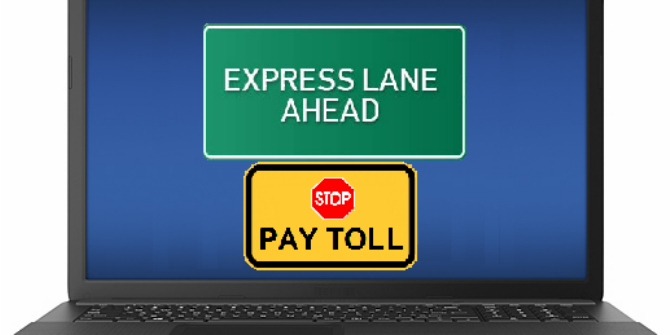 In the wake of the Woolwich murder and the April Jones trial, Culture Secretary Maria Miller, urged internet service providers, search engines and companies exploiting social networking sites to act more decisively regarding access to what is often called ‘harmful content’. In a letter to the UK managing director of Google, Secretary Miller wrote the following:
In the wake of the Woolwich murder and the April Jones trial, Culture Secretary Maria Miller, urged internet service providers, search engines and companies exploiting social networking sites to act more decisively regarding access to what is often called ‘harmful content’. In a letter to the UK managing director of Google, Secretary Miller wrote the following:
“Recent horrific events have again highlighted the widespread public concern over the proliferation of, and easy access to, harmful content on the internet. Whether these concerns focus on access to illegal pornographic content, the proliferation of extremist material which might incite racial or religious hatred, or the ongoing battle against online copyright theft, a common question emerges: what more can be done to prevent offensive online content potentially causing harm?”
The Culture Secretary is thus in effect calling for a drastic expansion of what I called elsewhere the Index Interneticus Prohibitorium. Iran and China are often criticized for blocking access to certain websites, but Western countries increasingly do so too. In the UK, for example, access to The Pirate Bay is blocked (although there are plenty of proxies out there to circumvent this). The point is, however, that extending this list of forbidden sites is a very slippery slope and according to me a potentially dangerous course of action in terms of civic freedoms and rights. We also need to be very cautious when traumatic and emotional events are being used as arguments to increase censorship in a democracy. Smells too much of the wrong kind of populism, especially given that a whole set of very different issues are being collated together as if they constitute the same degree of harm; for example, is file sharing as harmful as distributing child porn?
Of course, my suggestion that Western countries are starting to walk along the same path as authoritarian regimes when it comes to controlling and filtering internet access is a slight strategic exaggeration for the sake of argument. This parallel would be utterly rejected by any Western government. The comparison would be dismissed because evidently ‘our’ kind of harmful content (vaguely defined by the UK government as ‘extremist material’, ‘suicide websites’, ‘illegal porn’, etc.[1]) is not the same ‘harmful’ and ‘extremist’ content that China or Iran is blocking. Often what is deemed harmful and extremist for the Self is virtuous and righteous for the Other and vice versa.
However, let me be clear here. This is not an easy and straightforward debate by any means. Words matter and freedom of speech is nowhere absolute, not even in the US. The complication with the internet is that national law from one jurisdiction does not apply to content stored in another jurisdiction but remains accessible in all jurisdictions. Denying or grossly minimising the Holocaust is a criminal offence in Germany, Austria and Belgium, yet content developing arguments along these lines is accessible in these countries. It is stored on servers in the US where this type of offensive speech is protected by the 1st Amendment, or hosted in Iran for entirely different ideological reasons.
It seems to me that we are witnessing a gradual shift in the way in which the internet is treated and perceived, and this latest discussion about content regulation is just one illustration of this. We could also refer to the debate about what can and cannot be said on social networking sites, or the debate about political impartiality in smartphone applications. The internet as a network and as an information and communication technology has historically been situated within the post/telecoms regulatory paradigm which largely absolves the operators from any responsibility in terms of what type of content travels on their network and which foregrounds the privacy of communication between citizens.
This in combination with the (US) libertarian ideology, out of which the internet as an infrastructure partly emerged, meant that the online space was seen first and foremost treated as a totally free space, enabling the free flow of information, whereby all content is treated equally and censorship unthinkable. The argument went that the internet does not need any regulation that is content related as that is totally antithetical to what the internet is about. Furthermore, the internet has been designed in such a way that information packages would always be able to circumvent blockages. It is clear that this open and free vision of the internet is showing serious cracks without immediate hacks.
Increasingly we can observe that the internet is less and less considered to be a telecommunication tool and much more seen as a broadcasting tool, which comes with a whole different set of values and above all a much more stringent regulatory tradition relating to content. The number of followers (or the size of the audience) determines the extent of damage done to victims of libel, as demonstrated by the Lord McAlpine defamation case. The perceived increase in ‘media power’ of internet companies is used as an argument to regulate it as a broadcaster – as Miller stated: ‘with that power comes a great responsibility’.
Introducing online censorship is not a responsible way to deal with these tensions and genuine concerns, I hope that creative alternatives will be discussed when the Culture Secretary meets with industry leaders on the 18th. Furthermore, to take the route of further blocking would enable the Chinese or Iranian ambassador when challenged next time on the censorship practices of their countries to retort: ‘just like you, Sir, we are blocking harmful content’…
Note: This article gives the views of the author, and does not represent the position of the LSE Media Policy Project blog, nor of the London School of Economics.



